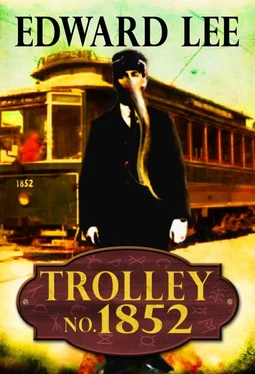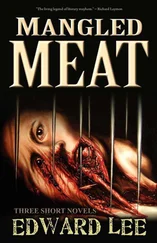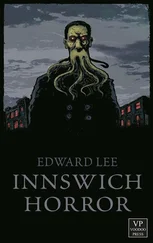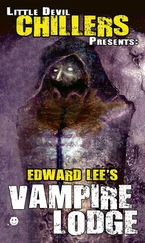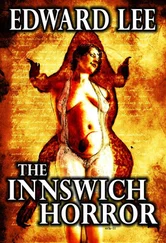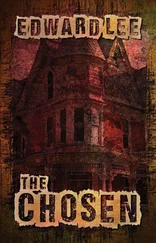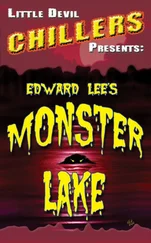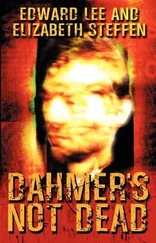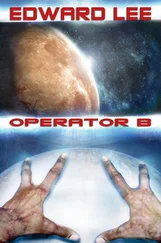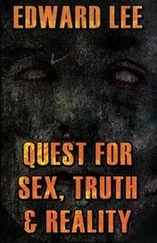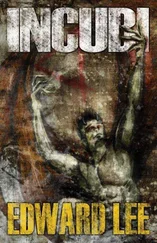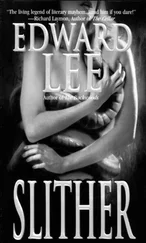This, of course, I in no way believed, but the mythology at large was one that had long held my interest. Whose interest it was not holding, however, was that of Erwin, who merely replied to my dissertation with an unemphatic “Oh, uh, really?”
I needed to put the pedantry of my bygone university days behind me; after all, I was a man on his way to a whore-house. Common working folk such as Erwin would not be roused in the least by such an arcane mythos. It was merely curious, though, the name of this “madam”: Aheb. How could it not cause me to reflect upon those fascinating older-than-ancient myths which detailed the supernatural revel of the Ahebites and their sacrificial reverence to an immense commune of limbless gods hailed as the Pyramidiles? These hideous deities existed as but pallid hulks of flesh, never moving, only thinking, only perceiving. The Pyramidiles, yes. Their human agent upon the earth was the obscene sorceress Isimah el-Aheb who had enspelled her people to bow down to these revolting cosmic abominations, paying homage to their nether-dimensional bulk by way of enfrenzied orgies and ravenous blood-baths which in turn generated the psychical horror on which these gods so thrived; indeed, it was the carnally beauteous el-Aheb who orchestrated rampant earthly horror in veneration; and to whom the Pyramidiles had blasphemously blessed with the gift of immortality via the sickish mold-green tincture that was but one of their wicked secrets. To her also they’d whispered their arcane manner of writing: a form of gematria, the substitution of numbers for letters. Once learned of all the Pyramidiles’ harrowing secrets, el-Aheb ruled the ancient outlands, to slaughter, pillage, rape, and defile, all in the name of the Pyramidiles, who lived on realms not of this earth or even this solar system, but in the screaming upside-down crevices between space and time; indeed, the Pyramidiles, the Putrid-Flesh Gods; eyeless, brain-filled masses of otherworldly organa, each the size of a mountain and, suspiciously, the shape of a pyramid…
What an intriguing and ultimately macabre old legend!
With more iron clatter and a swoosh, the previously unrelieved darkness broke—much to my commendation—as Trolley No. 1852 at last exited the deleterious tunnel and now roved down more dim, tenement-lined streets. Looking behind me, I noted that the overhead power-cables were no longer in evidence, and we seemed to be traveling along railways so long out of use that their heavy wooden ledgers had gone to rot. I could only assume that batteries now provided the trolley its propulsion, for how else could this be without the connexion of the overhead electricity cables?
“Almost there,” Erwin whispered.
Through more stone archways the sullen car delved; archways in the most decrepit brick walls; block-rimmed maws agape and garlanded by sickly ivy. Next, we crept through a series of grotesque yet captivating courtyards of what could only be abandoned edifices, each bizarrely interconnected by narrower archways. This was the old city, no doubt, one of several urban nooks left to disrepair and rendered tenantless via the contagion of outside squalor and ruination; truly we were traveling amid the very bowels of New York. Grainy wedges of moonlight cast a feeble pallor over all as broken statues watched the trolley from neglected sconces and rats scurried about fieldstone tiles and garbage-filled fountain basins. But it was in one of these eldritch inner-courtyards that the trolley suddenly slowed, jostled, then squealed to a stop…
I looked about, nearly at a loss for words. This courtyard stood in no less disintegration than the others: festooned by ivy, verminous with weeds. Rotten fabrics hung from the stone rails of second-, third-, and fourth-story verandas, while numerous once-fine marble statues stood armless, headless, and stained by lichens and bird-waste.
“What is this place, Erwin?” I whispered.
“This is it,” he told me. “Don’t be fooled by how it looks outside; I think they do it on purpose.”
I could only imagine he meant a deliberate subterfuge was at hand, to throw off suspicions of the uninvited, for who would think that any desirous activity could possibly take place behind so unkempt and dismal a facade?
Erwin and I were the last in line as the passengers all stood up to file in utter silence off the car. When I happened a glance to my pocket-watch, I saw that it was 4:12 a.m. As the queue moved down the aisle, however, I took notice, first, of the trolley’s position; it had stopped mid-yard, yet the rusted tracks continued forward to disappear beneath a great iron-beamed and rivet-studded door set solidly within yet another wide stone arch. Was it the shifting moonlight or my strained imagination that made me believe I saw traces of an oily, ill-coloured mist leaking through the door’s seams? What I noticed next must’ve been still another trick of poor-light: my glimpse forward, past the slowly descending line of debarking passengers, threw my gaze onto the motionless form of the motorman, who remained in his piloting cubby, his broad back to us, and his hand on the vehicle’s controller handle—his hand, I say…
My stomach knotted.
His hand, though I only glimpsed it for a moment, appeared as no hand at all but a cluster of rather stout worms wrapped about the controller handle’s end. Just as disturbing as the morphology of the hand was its colour: a bloodless white splotched with ill-toned green…
When a stiff chill passed, I realised it must either be dirtied utility gloves or some regrettable genetic malady.
The line dwindled; before I stepped off, my gaze felt preternaturally summoned to my left. There I spied the capped conductor staring right at me through the mask-like deadpan facial expression…
Gads!
I deboarded in haste and hurried up to Erwin who was following the others in. A rotten, wood-plank sign hung upon the transom of worm-eaten but iron-strapped door. The letters on the sign appeared branded in char: 1852 Club.
Torches, not electric bulbs, lit an expansive and ornately decor’d atrium which borrowed much from the greater Georgian period; clearly, this place must once have been an exorbitant hotel. Swirling dark mosaic tile-work could be seen in the gaps between Old World throw rugs; a marble fountain gushed crystalline water through the mouth of a horned cherub. Pilastered walls surrounded all; while great winding staircases rose upward from each end, to the first of three splendidly railed stair-halls which steeply overlooked the atrium below.
I allowed Erwin to take the lead; he and most of the others seemed nearly at home here, and all walked at once to a long, fringe-linened banquet table which sat heaped with fresh fruits and (much to my displeasure) ice-filled bins loaded with half-shelled oysters. It was to the latter that most of the men repaired, greedily slurping down the hideous, lumpen things one after another. As I most infrangibly detested all shellfish—most especially oysters, which made me think of grey phlegm—I made every attempt to appear at ease while sampling some tidbits of fruits and a glass of some superb vegetable juice. Eventually to Erwin I whispered, “So… where are the, uh—”
“The girls? Before you know it,” he promised with a guilty grin, “they’ll be all about.”
Only moments after he’d made this assurance, every face turned upward at the detection of svelte motion. Upon the fourth stair-hall my gaze held, on the stunning woman who’d just appeared: a raven-haired, Cleopatra-faced figure whose voluptuous curves and thrusting bosom were made even more pronounced by a diaphanous, black evening dress.
Читать дальше
